Gallery
Photos from events, contest for the best costume, videos from master classes.
 | 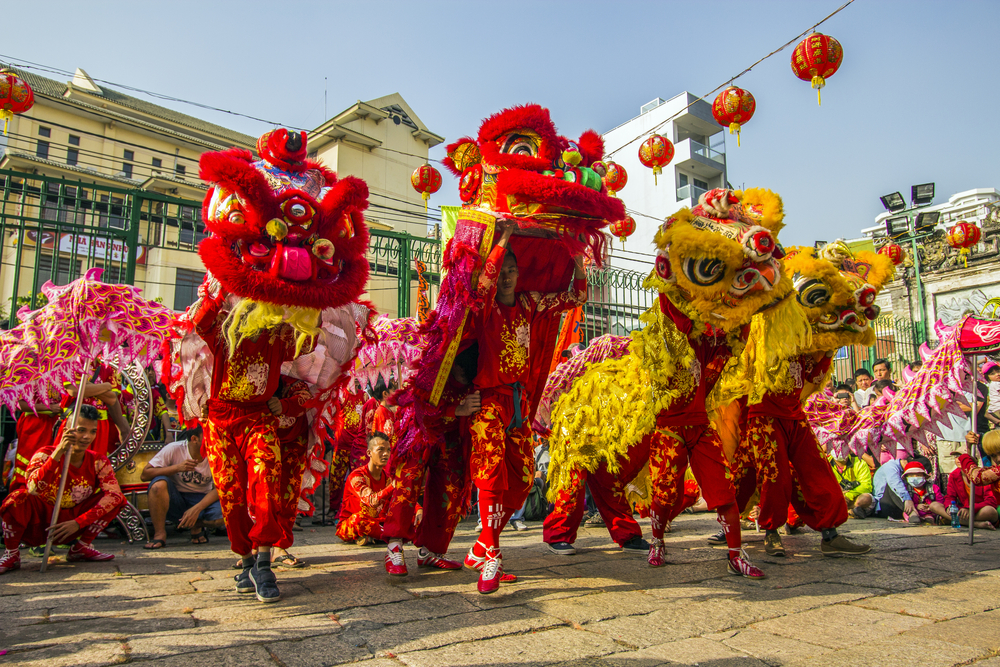 |
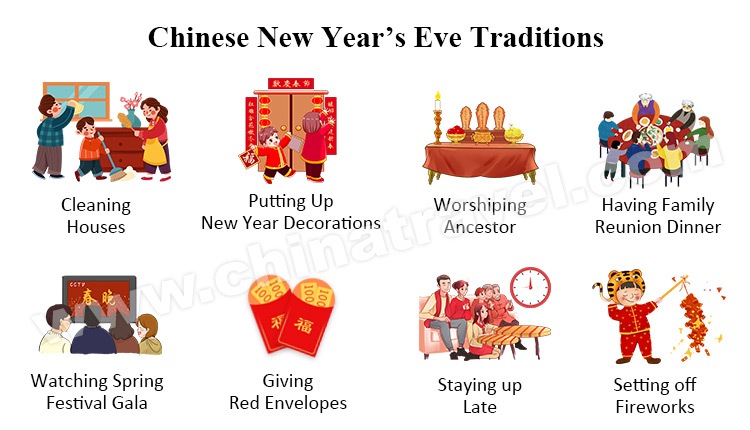 |  |
 | 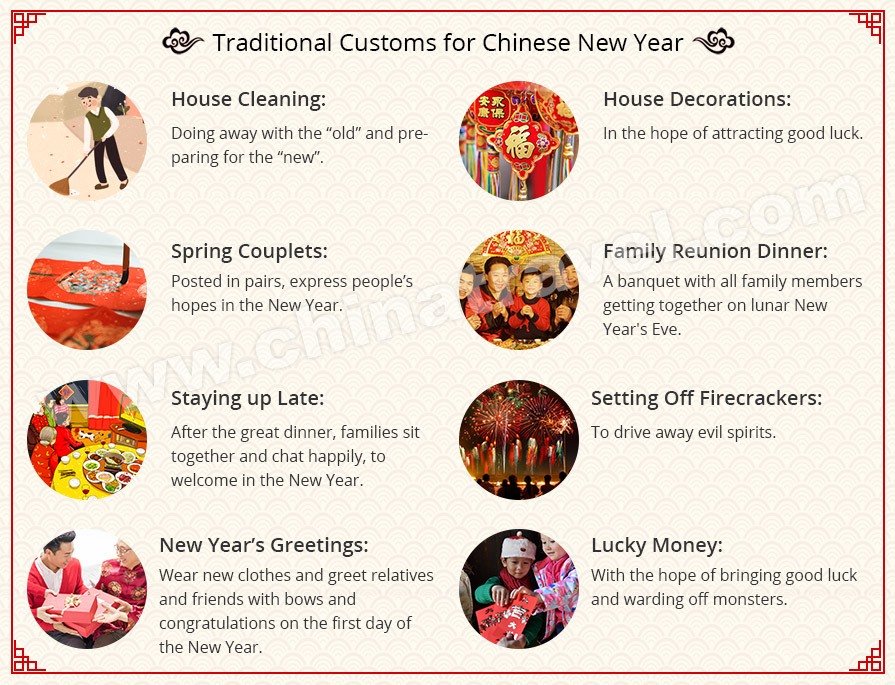 |
 | 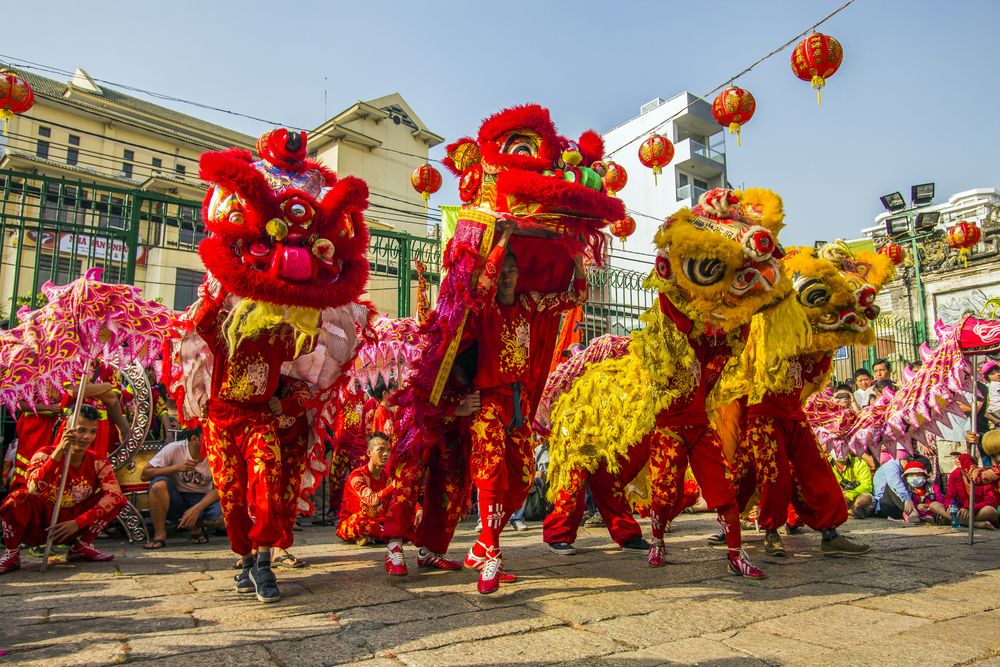 |
 | :max_bytes(150000):strip_icc()/GettyImages-639699024-5a6f55b2d8fdd50036be4c25.jpg) |
 | 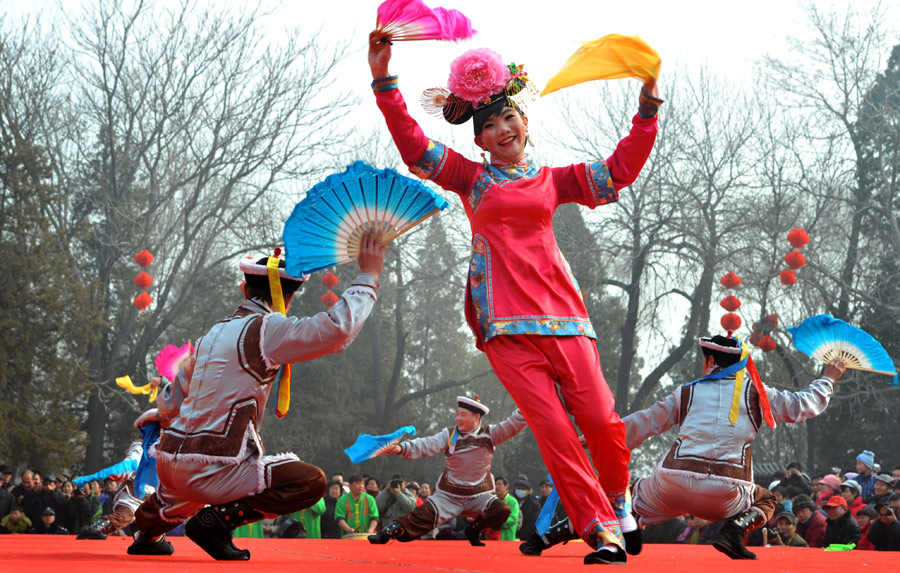 |
By decluttering and deep-cleaning, you remove stagnant energy and make room for positive chi (energy) to flow freely throughout your home. According to Feng Shui, a clutter-free, clean space enhances your well-being and attracts good fortune for the year ahead. How to spring clean for Chinese New Year: A step-by-step guide 1. Declutter with purpose Cleaning the house is a long-observed Chinese New Year tradition. The ground, the walls, and every corner of the house need to be cleaned. In Chinese, “Dust” is a homophone for the word “Chen", meaning the old. Therefore a year-end cleaning is needed to drive the old things or the bad luck away from the house, and get ready for a new start. Wong adds that many Chinese traditions around the new year, like cleaning or eating sweets, are all about setting the mood for the year ahead. “A lot of it feels about intent. [Eating] sweet treats in the morning not only signals a new change for the new year, but it’s about bringing in only sweet moments in life. Out of all the Chinese New Year customs and traditions, this one might be a young person’s favorite. However, if you don’t manage to clean your home in time, don’t try to make up for it By tidying up in advance, you clear away the bad luck of the past year and create space for positive energy and blessings in the year ahead. House Cleaning For Chinese New Year: Your Checklist Mental Preparation & Timing. Set A Clear Intention: Take a moment to set a clear intention before you begin cleaning your house during Chinese New Year All cleaning and shopping must be completed in the days leading up to the Lunar New Year, from the 23rd to the 29th of the 12th lunar month (these dates may vary by region in China). On a very practical level, the frenzy of cleaning means that the house is nice and tidy for the reunion dinner on the night before Lunar New Year, or for guests to With rich customs and traditions, the Lunar New Year has become a time for renewal, familial reunions, and honoring Chinese cultural practices. From cleaning homes to grand parades and processions, the New Year celebrations are full of life and energy. Read on and explore some of the most popular and significant customs and traditions during These 100 sheets of soft and durable tissue ensure a comfortable and hygienic cleaning experience, aligning seamlessly with the traditions of Chinese New Year. 小年扫尘, with its profound symbolism and meticulous practices, embodies the essence of the Chinese New Year's preparations. Chinese new Year Cleaning. Clean the house BEFORE Chinese New Year—not on Chinese New Year’s Day. It’s time to clean out all the bad juju from the past year and start off with a clean slate. That means a DEEP CLEAN. Dusting is very important. Get rid of all the cobwebs and crust of the previous year that might hold you back in the year ahead! Chinese New Year is one of China's traditional festivals with a history of over 1000 years. Throughout its evolution, it has developed many customs. Most of the traditions we see today have been passed down from the past. Read the top 15 Chinese New Year Traditional activities below: Chinese New Year traditions 1. House Cleaning 13. Watching the CCTV New Year’s Gala. On the eve of Chinese New Year, millions of people across China and beyond tune in to watch the CCTV New Year’s Gala. This televised variety show features a wide array of performances, including music, dance, comedy, acrobatics, and more. Cleaning before Chinese New Year has deep roots in ancient rituals, with practices documented as far back as 241 B.C.. The linguistic link between the word for dust and the concept of old age underscores the cultural belief in clearing away the past to invite good fortune. The Chinese word for “book” (shū) sounds exactly the same as the word for “lose” – so buying a book right after ringing in the New Year is considered an invitation for bad luck. The entire house should be cleaned before New Year’s Day. On New Year’s Eve, all brooms, brushes, dusters, dust pans and other cleaning equipment are put away. Sweeping or dusting should not be done on New Year’s Day for fear that good fortune will be swept away. After New Year’s Day, the floors may be swept. On the 28th, 29th or 30th day of the new year, every household "posts the New Year's Red" (the New Year's Red is the collective name for the red festive elements pasted during the New Year, such as Spring Festival couplets, door gods, horizontal batches, New Year pictures, and the word "Fu"). The annual Chinese New Year is coming and the traditional Chinese New Year this year falls on January 22nd, 2023. As the lunar new year is approaching, we Chinese will take long holidays off. Pre-Chinese New Year Preparations and Activities (Jan. 7–Feb. 12, 2025) Jan. 7, 2025: Laba Festival. Some Chinese start to celebrate and prepare for Chinese New Year as early as day 8 of the 12 th month of the lunar calendar. For Chinese people, Spring Festival means family reunion, visiting relatives and honoring ancestors. Purchasing for the Spring Festival, pasting spring couplets, setting off firecrackers, gathering for the reunion dinner, staying up on New Year's Eve, giving New Year's greetings, giving lucky money and going to the temple fair are traditions unique to the Chinese New Year. Chinese New Year superstitions are traditional beliefs and practices observed during the Lunar New Year to bring good luck and ward off misfortune. These customs range from avoiding certain actions to performing specific rituals, all aimed at ensuring a prosperous year ahead. 20 Chinese New Year Superstitions 1. Avoid Cleaning on New Year’s Day 2025 Auspicious Dates for Chinese New Year Customs Spring Cleaning (大扫除) The phrase “On the 28th day, clean away the dirt” (年廿八,洗邋遢) reflects a tradition of end-of-year spring cleaning, which many Feng Shui practitioners believe refreshes a household’s energy and invites positive fortune for the coming year.
Articles and news, personal stories, interviews with experts.
Photos from events, contest for the best costume, videos from master classes.
 |  |
 |  |
 |  |
 |  |
 | :max_bytes(150000):strip_icc()/GettyImages-639699024-5a6f55b2d8fdd50036be4c25.jpg) |
 |  |